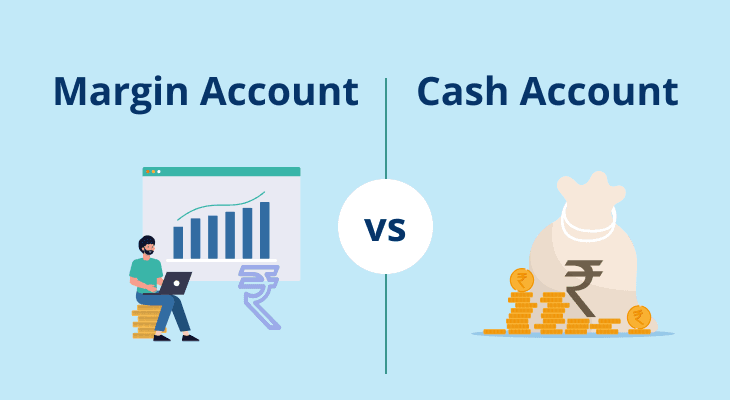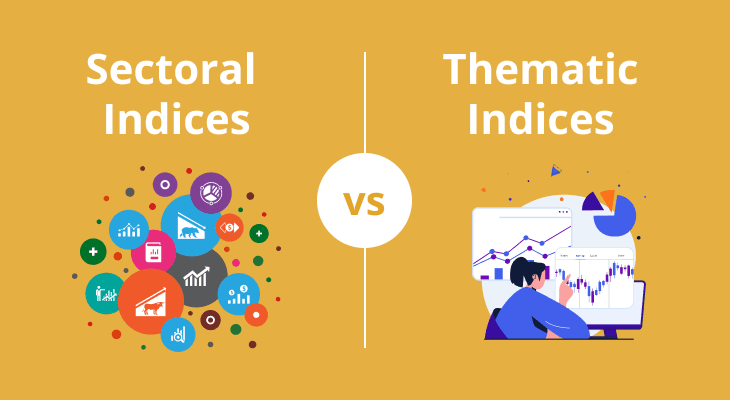
What type of brokerage account is right for you?
Introduction:
After the pandemic, there has been a sudden rise in the number of demat accounts (also known as brokerage accounts) in India. More and more people are looking to invest and trade in stocks as they learn about the stock markets and their potential to create long-term wealth. But as a beginner, you may wonder where to start your investment journey. The answer is by opening a brokerage account. But you also need to decide which type of brokerage account is right for you. Should you opt for a traditional full service brokerage account or a discount brokerage account? And what about zero brokerage accounts? With so many options, it is easy to get confused. But don't worry, this article will answer all your questions.
A brokerage account allows you to buy and sell shares in the stock market. However, there are numerous options available. Let's look at the types of brokerage accounts and identify which is best for you.
Types of Brokerage Accounts:
Discount Brokerage Account: This type of account allows investors to buy and sell stocks and securities at a lower brokerage rate. A discount brokerage account comes with limited additional charges. It requires investors to plan, research and trade on their own. This type of account is the most suitable for beginners. A broker like m.Stock provides a simple and user-friendly platform with fundamental data and technical charts for every stock.
Full-Service Brokerage Account: Apart from providing a platform for trading and investing, a full-service brokerage account provides a wide range of services such as investment advice and professional portfolio management. All these services include additional charges. This type of account is more suitable for wealthy investors who don’t want to do their own research and want advice on the stocks to buy and sell. When you opt for portfolio management services, the brokers control the buying and selling of your investments. Needless to say, full-service brokers charge additional fees for these services. Hence, this type of account is not ideal for beginners.
Margin Brokerage Account: This type of account allows you to borrow money from the brokerage firm to purchase securities. The securities purchased with the margin are held as collateral in your demat account. Both full service and discount brokers offer margin facilities. This feature allows traders to increase their trading potential, but also it attracts risks. If a trader makes a wrong trade using the borrowed amount from a margin account, they can end up having a huge debt. m.stock provides you margin trading facility at a low interest rate with zero brokerage.
Factors to Consider Before Choosing the Best Brokerage Account for You:
To find the right brokerage account for you, the best way is to make a list of factors you would consider based on your investment strategy and expect from the broker. Here are some essential points to consider:
Check for the charges: Most brokers charge brokerage for every successfully executed trade in the market. But there are brokerage firms such as m.Stock, which allow you to trade with zero brokerage on equity delivery, mutual funds and IPO with no limit on the number of trades.
Hidden fees: In some cases, hidden fees are included in the brokerage accounts as a part of their maintenance fees or account opening charges. While opening the account, you should check for all kinds of fees the broker charges.
Customer Support: The brokerage account you select should have one of the best customer support. Before you choose a brokerage account, check for their support services. You can always check online reviews to better understand their support cycle and feedback response rate.
Investment options on the platform: It is imperative to select a broker which offers a variety of assets such as equities, futures and options, currencies, commodities, ETFs and mutual funds. This saves you the hassle of opening multiple demat accounts with different brokers.
Deposit and Withdrawal Timings: In most brokerage accounts, you can deposit and withdraw your money instantly, but it is a good practice to be aware of these details.
Leverage Offered: Leverage plays a vital role for an intraday trader. Leverage is the loan offered by the broker. If you want to place large trades with a small capital amount, you should look for brokers that offer high leverage. m.Stock offers up to 4X leverage on trades. This means that you can buy a stock worth ₹100 by just paying ₹20 and the remaining ₹80 will be provided by the broker.
Research Capabilities: The best brokerage account provides research services to its users, publishes reports of different sectors, economies, and upcoming IPOs and recommends good trading opportunities for the traders.
Investment Needs and Goals: It is essential to be clear about your investment needs and goals. Are you investing for a specific purpose? Or are you looking to boost your regular income? Answer these questions honestly to yourself. When starting your investment journey, you must educate yourself by reading blogs and videos, and practice trading with virtual money before trading with real money. If you have experience, you may prioritise investing in different investment options such as mutual funds, commodities, stocks and bonds
Participating in the financial markets requires selecting the best brokerage account for you. An account with a user-friendly interface, secure trading platform, advanced trading facilities, including strong research capabilities and zero brokerage is a must in today’s world.
Ready to start your investment journey now? Why wait! Click here to get started.
FAQ
1. What is the best brokerage account for beginners?
A brokerage account which offers zero brokerage, has a user-friendly interface and outstanding customer support and is ideal for beginners. Open your demat account with m.Stock, to get all these features.
Is there a minimum balance to open a brokerage account?
These days brokers do not require a minimum amount to get started; you just have to pay a small yearly fee and can enjoy unlimited trades throughout the year.
How can I take my money out of the brokerage account?
You can take money out of the brokerage account but have to follow a few steps. If you have a balance in your wallet, you can place a withdrawal request, and it will be credited into your bank account within 24-48 hours.
What are the different types of brokerage accounts?
There are different stock brokerage accounts, such as full-service brokerage accounts, discount brokerage accounts, and margin brokerage accounts.


